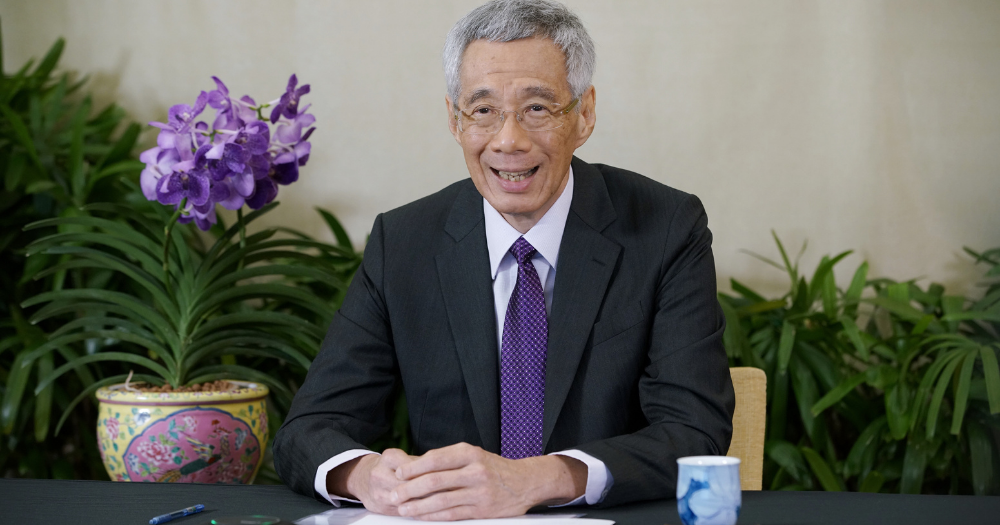Prime Minister Lee Hsien Loong gave a closing speech on Jan. 29 at the World Economic Forum's Davos Agenda conference.
In his speech, Lee emphasised that global cooperation is critical and the state of the post-Covid-19 world depends on the decisions that global leaders make now.
Global cooperation remains critical
PM Lee said that the Covid-19 pandemic reminded countries that "our fates [were] intertwined".
To overcome the challenges posed by Covid-19, countries have collaborated in many ways to restore supply chains, repatriate citizens stuck overseas, share medical supplies and build access vaccines.
Doctors and scientists globally have shared information about the disease and virus so that we can improve patient care and produce effective vaccines in record time.
"Such international cooperation and multilateral efforts remain essential, to tackle the global pandemic coherently," he said.
He gave the example of vaccinations, in that making sure that lower income countries have access to vaccines is not just in their own interests, but everyone else too.
PM Lee linked this to the migration crisis, in that inequality leads to people in lower income countries to think about leaving for a better life elsewhere.
To resume growth, collaborate to tap new markets
Covid-19 has also terribly affected the economies around the world, causing enormous stress on the people, businesses, and politicians.
"To resume growth, we must look beyond returning to status quo ante. We must look ahead," PM Lee said.
Governments and businesses must collaborate to tap new markets and develop novel technologies within countries.
Countries also have to strengthen the framework for international cooperation such as developing a standardised, robust system to verify the authenticity of tests and vaccinations for borders to reopen.
International institutions should create new rules to govern and foster new forms of economic activity.
PM Lee gave examples such as the digital economic agreements that Singapore concluded with countries like Australia, Chile and New Zealand and the Regional Comprehensive Economic Partnership signed last year.
Don't lose sight of climate change
While country leaders are caught up in the imminent need to address Covid-19 and economic recovery, PM Lee gave a reminder that climate change is a long term challenge that leaders must not lose sight of.
He said:
"Climate change is clearly accelerating dangerously, and it is late in the day. But if countries act now and in concert, humankind can still hope to avert a catastrophe."
PM Lee added that each country has to muster support for policies and measures that will slow down the changes and limit global warming.
Collectively, countries have to set higher common standards and fulfill commitments to tackle climate change such as tightening emission rules, phasing out fossil fuel subsidies, or promoting renewable energy.
However, we can take comfort that two top carbon emitter countries, the U.S. and China, have committed to addressing climate change issues. He said:
"We can take some comfort that countries are now taking climate change more seriously. The U.S. has re-joined the Paris Agreement. China has announced a zero-emissions target by 2060."
"But much more still needs to be done, going beyond our Paris commitments," he concluded.
Background
Business executives and country leaders recently met virtually for the World Economic Forum's Davos Agenda Week.
Davos Agenda Week happened from Jan. 25 to Jan. 29 for global leaders to share ideas and solutions to drive recovery over the next year in light of Covid-19.
This conference also marks the beginning of preparation for the Special Annual Meeting which will be held in Singapore this year in late-May.
You can watch his speech in full here:
Related stories
Top image via MCI
If you like what you read, follow us on Facebook, Instagram, Twitter and Telegram to get the latest updates.
